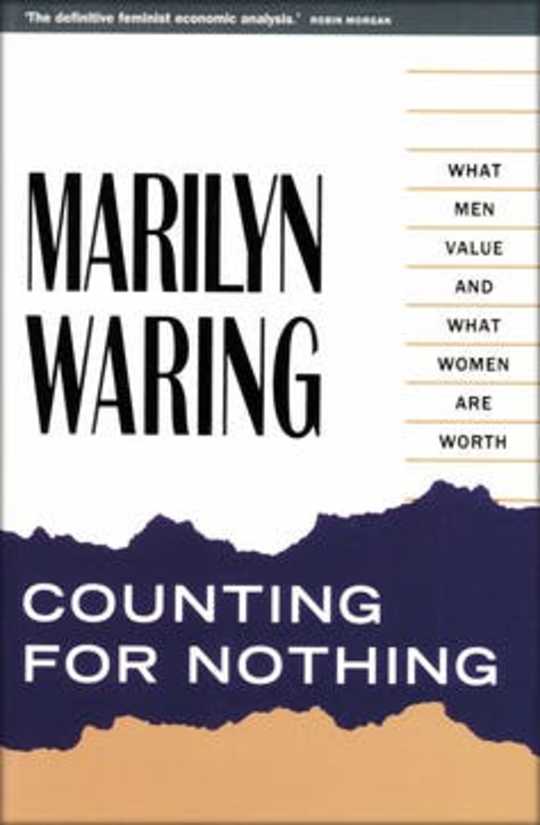 Shutterstock
Shutterstock
Working from home during COVID-19 appeared to cost us little.
Yet employers effectively requisitioned part of those homes.
While necessary, it was far from costless to us, and our generosity shouldn’t be taken for granted.
Bureau of Statistics figures show that during April and May about half the workforce worked from home.
Working at home has been far from costless
Preliminary results from a survey of more than 2,000 households suggest paid workers put in about as many paid hours per day as before (half to one hour less) but that unpaid work skyrocketed, by an extra five hours per day for women, and an extra two and a half hours for men.
Much of the increase was in childcare. Three in four Australians who live with children kept them home.
Some of it was in extra cleaning and washing, costs that for the moment (along with, for some workplaces, rent) many employers no longer needed to bear.
Few of us working from home will bother to bill our employers for the extra heating, office furniture, office consumables, home phone and internet use, toilet paper and coffee we’ve had to fork out for.
The Tax Office has indicated it will disallow deductions for tea, coffee and toilet paper saying, “just because you have to provide those things for yourself doesn’t make them deductible”.
Akin to the requisitioning of assets permitted by the state in emergencies, employers have in effect requisitioned parts of our homes – rent free and without paying utility costs.
With more people using each home, and more meals cooked and eaten at home, time in the kitchen has soared. As supermarket shopping has become less appealing, consumer durables such as bread-makers and freezers have been brought in. Backyard vegetable gardens and chicken runs have popped up.
Most of the extra work has fallen to women. Surveys often understate it by asking only about the “primary” activity in each quarter hour block rather than secondary activities (which often include childcare) undertaken at the same time. Multitasking intensifies work.
How do we make it count?
 Counting for Nothing, released in 1988
Counting for Nothing, released in 1988
In an explosive book released more than 30 years ago entitled Counting for Nothing, New Zealand politician and economist Marilyn Waring described the dominant method of accounting for work as “applied patriarchy”.
The tool is gross domestic product (GDP), a measure that mostly only takes account of work that is paid.
The point was that unpaid household work and care counted for nothing.
Since then, time use surveys have found that non-market household production is very large – in Australia, equivalent to an extra half of GDP.
This matters, because its exclusion allows GDP to give us a distorted idea of progress.
In each normal year the Organisation for Economic Co-operation and Development forecasts growth in developed nations of between 2% and 4%.
That’s growth in gross domestic product. OECD calculations released in 2018 suggest that as much as a third of that growth – 0.84 to 1.79 percentage points – is an artefact, created by the shift from what had been unpaid household work and childcare into to paid household work and childcare.
That is, the official figures have presented a mirage. Parents have replaced unpaid childcare – which is not counted in GDP – with paid childcare, which is counted.
The switch has been recorded as “growth”, but it hasn’t been growth in work done or services provided. It is better described as accounting rather than economic growth.
If the accounting was done properly – if countries such Australia properly counted the value of unpaid household and services – it would show much lower growth and more frequent recessions.
And if our environment and resources (another omission except when they are exploited) had been properly accounted for, GDP growth would be lower again.
The household services artefact has been reversed during the COVID-19 lockdown. Many of us have been doing as much or more than we did, but less of it has been counted.
As it happens, the value of services provided by the home itself are included in GDP, through rent for renters and “imputed rent” for home owners. Home-grown produce is included as well, but unpaid human-provided services are not.
It’s as if it didn’t happen
The weak March quarter GDP result strengthened calls for extra spending on infrastructure – things such as mines, pipelines and fast trains to airports.
Days later the prime minister announced that childcare would no longer be free and JobKeeper for childcare workers would be replaced by a less generous subsidy.
It’s not what might have been expected after a historic opportunity to rethink productivity and wellbeing. Putting money into the care sector creates twice as many jobs per dollar as putting it into construction. A higher proportion of investment in the care sector also flows to women, whose paid work has been disproportionately hit by the shutdown.
Things that would help include increased worker protection against white collar sweatshops), expanded and reconfigured tax deductions for working from home, a paid allowance for home schooling costs during the shutdown and a shorter working week to rebalance roles at home.
Behind everything should lie proper accounting for care work. Without it we are likely to continue to rely on the generosity of unpaid working women, acting as if it is free.![]()
About The Author
Julie P. Smith, Honorary Associate Professor, Australian National University and Fiona Jenkins, Associate Professor, Australian National University
This article is republished from The Conversation under a Creative Commons license. Read the original article.
Recommended books:
Capital in the Twenty-First Century
by Thomas Piketty. (Translated by Arthur Goldhammer)
 In Capital in the Twenty-First Century, Thomas Piketty analyzes a unique collection of data from twenty countries, ranging as far back as the eighteenth century, to uncover key economic and social patterns. But economic trends are not acts of God. Political action has curbed dangerous inequalities in the past, says Thomas Piketty, and may do so again. A work of extraordinary ambition, originality, and rigor, Capital in the Twenty-First Century reorients our understanding of economic history and confronts us with sobering lessons for today. His findings will transform debate and set the agenda for the next generation of thought about wealth and inequality.
In Capital in the Twenty-First Century, Thomas Piketty analyzes a unique collection of data from twenty countries, ranging as far back as the eighteenth century, to uncover key economic and social patterns. But economic trends are not acts of God. Political action has curbed dangerous inequalities in the past, says Thomas Piketty, and may do so again. A work of extraordinary ambition, originality, and rigor, Capital in the Twenty-First Century reorients our understanding of economic history and confronts us with sobering lessons for today. His findings will transform debate and set the agenda for the next generation of thought about wealth and inequality.
Click here for more info and/or to order this book on Amazon.
Nature's Fortune: How Business and Society Thrive by Investing in Nature
by Mark R. Tercek and Jonathan S. Adams.
 What is nature worth? The answer to this question—which traditionally has been framed in environmental terms—is revolutionizing the way we do business. In Nature’s Fortune, Mark Tercek, CEO of The Nature Conservancy and former investment banker, and science writer Jonathan Adams argue that nature is not only the foundation of human well-being, but also the smartest commercial investment any business or government can make. The forests, floodplains, and oyster reefs often seen simply as raw materials or as obstacles to be cleared in the name of progress are, in fact as important to our future prosperity as technology or law or business innovation. Nature’s Fortune offers an essential guide to the world’s economic—and environmental—well-being.
What is nature worth? The answer to this question—which traditionally has been framed in environmental terms—is revolutionizing the way we do business. In Nature’s Fortune, Mark Tercek, CEO of The Nature Conservancy and former investment banker, and science writer Jonathan Adams argue that nature is not only the foundation of human well-being, but also the smartest commercial investment any business or government can make. The forests, floodplains, and oyster reefs often seen simply as raw materials or as obstacles to be cleared in the name of progress are, in fact as important to our future prosperity as technology or law or business innovation. Nature’s Fortune offers an essential guide to the world’s economic—and environmental—well-being.
Click here for more info and/or to order this book on Amazon.
Beyond Outrage: What has gone wrong with our economy and our democracy, and how to fix it -- by Robert B. Reich
 In this timely book, Robert B. Reich argues that nothing good happens in Washington unless citizens are energized and organized to make sure Washington acts in the public good. The first step is to see the big picture. Beyond Outrage connects the dots, showing why the increasing share of income and wealth going to the top has hobbled jobs and growth for everyone else, undermining our democracy; caused Americans to become increasingly cynical about public life; and turned many Americans against one another. He also explains why the proposals of the “regressive right” are dead wrong and provides a clear roadmap of what must be done instead. Here’s a plan for action for everyone who cares about the future of America.
In this timely book, Robert B. Reich argues that nothing good happens in Washington unless citizens are energized and organized to make sure Washington acts in the public good. The first step is to see the big picture. Beyond Outrage connects the dots, showing why the increasing share of income and wealth going to the top has hobbled jobs and growth for everyone else, undermining our democracy; caused Americans to become increasingly cynical about public life; and turned many Americans against one another. He also explains why the proposals of the “regressive right” are dead wrong and provides a clear roadmap of what must be done instead. Here’s a plan for action for everyone who cares about the future of America.
Click here for more info or to order this book on Amazon.
This Changes Everything: Occupy Wall Street and the 99% Movement
by Sarah van Gelder and staff of YES! Magazine.
 This Changes Everything shows how the Occupy movement is shifting the way people view themselves and the world, the kind of society they believe is possible, and their own involvement in creating a society that works for the 99% rather than just the 1%. Attempts to pigeonhole this decentralized, fast-evolving movement have led to confusion and misperception. In this volume, the editors of YES! Magazine bring together voices from inside and outside the protests to convey the issues, possibilities, and personalities associated with the Occupy Wall Street movement. This book features contributions from Naomi Klein, David Korten, Rebecca Solnit, Ralph Nader, and others, as well as Occupy activists who were there from the beginning.
This Changes Everything shows how the Occupy movement is shifting the way people view themselves and the world, the kind of society they believe is possible, and their own involvement in creating a society that works for the 99% rather than just the 1%. Attempts to pigeonhole this decentralized, fast-evolving movement have led to confusion and misperception. In this volume, the editors of YES! Magazine bring together voices from inside and outside the protests to convey the issues, possibilities, and personalities associated with the Occupy Wall Street movement. This book features contributions from Naomi Klein, David Korten, Rebecca Solnit, Ralph Nader, and others, as well as Occupy activists who were there from the beginning.
Click here for more info and/or to order this book on Amazon.























